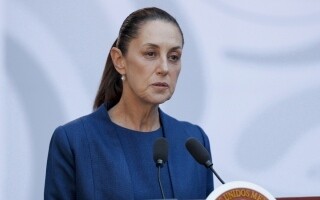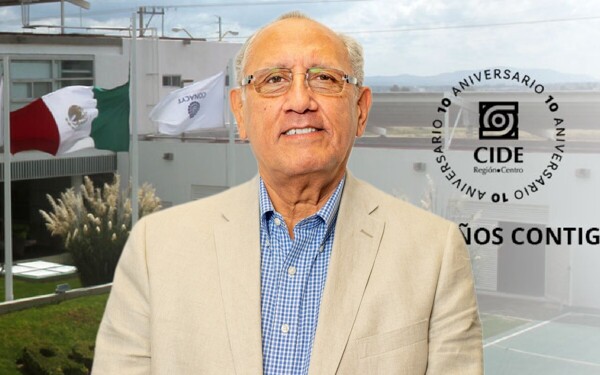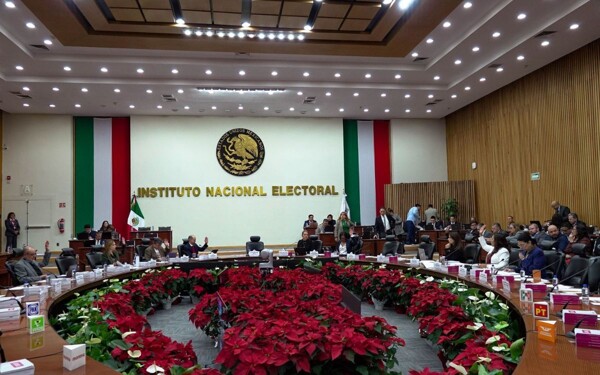
Posters declaring "Harfush is the one we need" still adorn car windows in Mexico City. This slogan dates back to Omar Garcia Harfush's candidacy for mayor of the city in 2023. During his four-year tenure as head of city security under then-Mayor Claudia Sheinbaum, the homicide rate dropped by about 40%, one of the largest declines in the country, which made him very popular.
Harfush won the Morena National Renewal Movement nomination by a landslide, but then stepped aside in favor of the candidate who came in second, so the party could meet its women's quota. Instead, Harfush joined Sheinbaum at the presidential palace in October 2024 as Minister of Security to apply his intelligence-based approach to combating drug cartels across Mexico, where many Mexicans believe he is their best hope for ending the violence that has plagued the country for years.
Initial evidence suggests this is true. According to Sheinbaum's government, Mexico's homicide rate fell by 32% in the year following her inauguration.
A Broader View However, an independent analysis by The Economist showed that the rate did indeed fall, but by only 14%. It also points out that when calculating homicides alone, an important part of the picture is ignored: thousands of people disappear in Mexico every year, many of whom are killed and buried in unmarked graves. A broader look at homicides—including manslaughter, femicides, and two-thirds of disappearances—shows a more modest 6% decline, according to the analysis.
Still, Mexico is on track to record around 24,300 homicides this year, a horrifyingly high number, but well below the recent annual average of just over 30,000.
Root Cause Sheinbaum is the first Mexican woman president in years to push crime fighting in the right direction, but there is a question of how she and Harfush managed to achieve this. Although the Mexican president maintained the rhetoric of her predecessor and mentor, Andrés Manuel López Obrador, about addressing poverty as the root cause of crime and violence, her policy took a different turn, starting with her security team. Harfush's team clearly relies on data. Sheinbaum gave him new and sweeping powers in coordination and intelligence. His allies have been appointed to leadership positions in key institutions, including the financial intelligence unit that tracks so-called "dirty money."
Mexicans have no doubt about the minister's commitment to the cause. Harfush survived an assassination attempt in 2020 when gunmen fired more than 400 bullets at his convoy, killing two of his bodyguards.
Arrests have reached record levels, and as security analyst Eduardo Guerrero notes, they have become "smarter," with Harfush targeting the most violent gangs rather than their leaders, as well as those involved in money laundering. The number of firearms seized has also doubled.
Hope The state of Zacatecas, once Mexico's most violent, offers a hopeful story of what can be achieved. State and federal governments share responsibility for public safety, and the homicide rate in Zacatecas has fallen since the cartel war over migrant and drug trafficking routes peaked in 2021. Last year, the rate fell more sharply than in any other state.
Zacatecas has purged its security forces of corrupt officers, hired new ones from other, less cartel-fearing parts of Mexico, created two special forces units, and imposed unified command on its most violent municipalities, boosting public confidence in security forces.
"Citizens have started reporting crimes again," says Zacatecas state Undersecretary of Security Genes Jaime Ruiz Garcia. The state's government secretary, Rodrigo Reyes, confirms that federal assistance and closer intelligence sharing under Harfush were critical.
Civil War Yet a trip to Sinaloa state shows the limits of this approach clearly. A civil war has raged within the Sinaloa cartel since late 2024, and more than 11,000 federal soldiers stationed across the state have been unable to stop the violence. The homicide rate has tripled since the conflict began.
Even with armored convoys and drones with night vision, Sinaloa's security forces can do little more than secure roads and key infrastructure. They have failed to wrest control of the state from the cartels.
Sinaloa shows the enormous obstacles Sheinbaum inherited; the criminal group controlling the state is vast and entrenched, and the Jalisco cartel is firmly nationalized. According to Guerrero, nearly two-thirds of Mexico's homicides are linked to organized crime, and extortion is on the rise, while criminal groups spread to states like Michoacán, Guerrero, and Mexico state.
Improving Security in Michoacán Last week, Mexican President Claudia Sheinbaum's government unveiled plans to combat organized crime and improve security in violence-plagued Michoacán state, following the assassination of a local mayor that shocked the nation.
Officials announced at a press conference that more than 10,000 army, air force, and national guard personnel are participating in the operation, named the "Michoacán Plan for Peace and Justice," to eliminate criminal groups, combat extortion, dismantle drug labs and training camps. Sheinbaum said the plan includes $3.1 billion in investments.
Michoacán has seen new waves of violence since the mayor of Uruapan, Carlos Manzo, was shot dead during Day of the Dead celebrations on November 1. Manzo was a prominent critic of the federal government for its inaction against organized crime.
Officials confirmed they would boost the state police and prosecutor's office. The plan also includes increasing social services, agriculture, infrastructure, tourism, and employment.
"We are making a special effort for the people of Michoacán," the Mexican president said, adding she would personally track the plan's progress every 15 days and issue periodic reports to the public.














